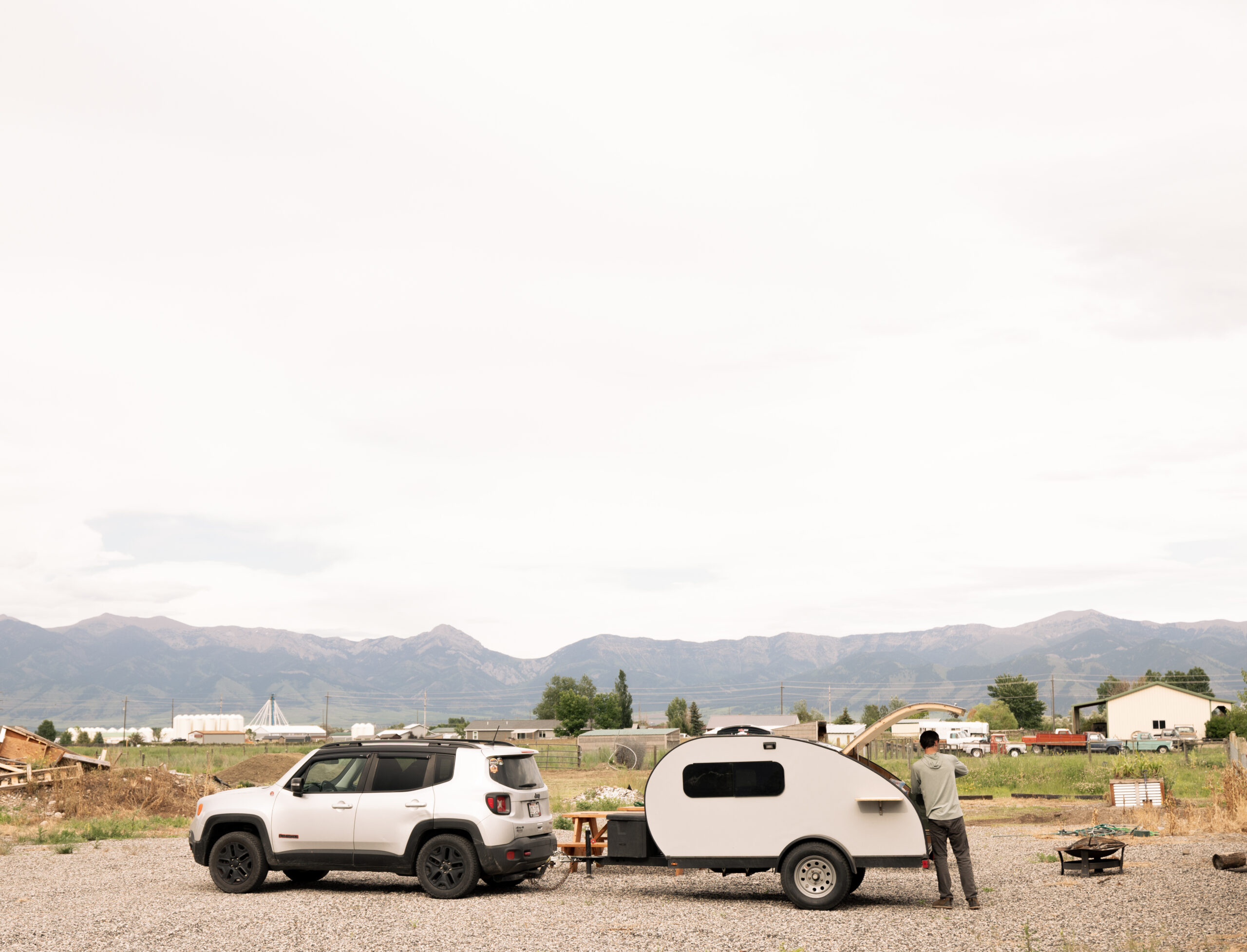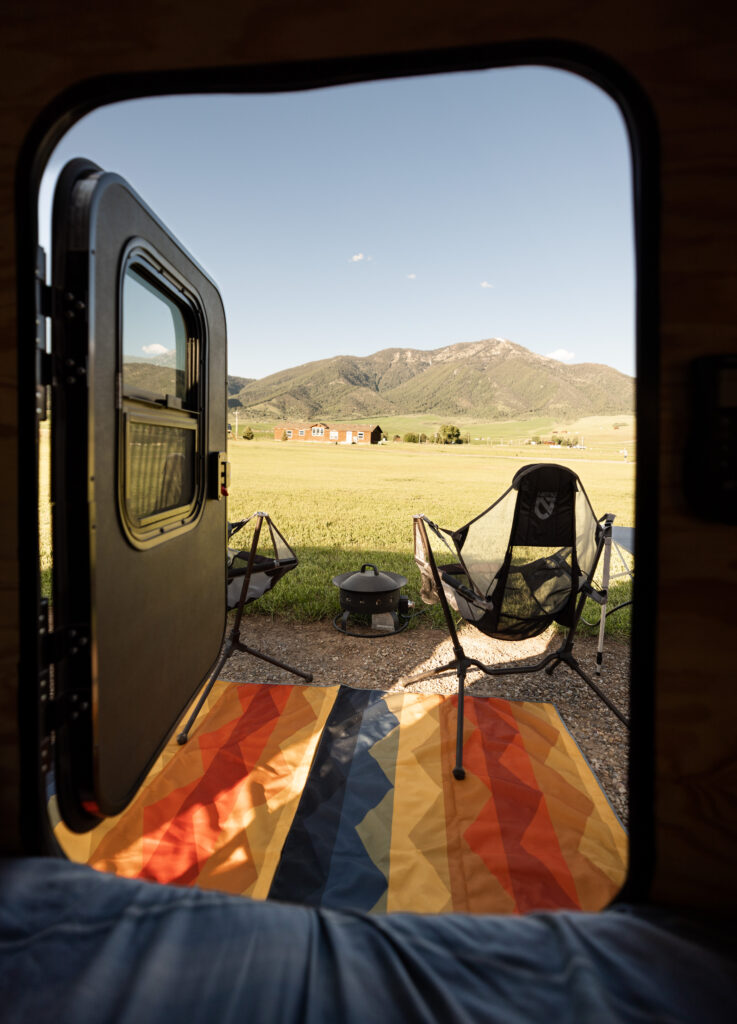Roughly this time last year we were finishing our teardrop and prepping for life on the road. We didn’t really know what to expect going into it, we just knew that we wanted travel. Since then we have learned so much about this lifestyle, both good and bad.
Here’s a list of things we wish we knew before living on the road. And for those of you getting ready to start your own nomadic journey, hopefully knowing these things helps make your transition smoother and more informed, giving you a clearer picture of what to really expect!

(This post contains affiliate links. If you make a purchase, I may earn a small commission at no cost to you. Thanks for the support!)
1. Doing laundry is expensive
One of the biggest shocks to us was finding out how expensive doing laundry is. When you’re used to having a washer + dryer at home, the cost of laundry probably doesn’t cross your mind. On average, washing + drying one load was about $10. If you do your laundry once a week it can add up fast. Keep in mind you can wear things like pants + sweatshirts more than once before washing them!
2. It’s easy to overpack at first
When we first moved into our teardrop we had no idea how little we needed. We seriously over estimated how much we would use certain things, and Austin always wants to be prepared for every possible situation. This made it really easy for us to over pack. We realized we should’ve left heavier items in our storage unit, especially given our 2,000lb tow limit. When living in such a small space it’s important that everything has a purpose (or multiple purposes) to avoid feeling cluttered!
About halfway through the summer we ended up mailing a package back to Wisconsin full of extra clothes and books. A majority of the clothes sent back were warm/bulky things that weren’t necessary during the summer, so keep in mind your location(s) for the season when going through your closet. We also had a lot less down time than we thought we would, so don’t bring your whole library. When we visited family in September we left behind a few heavy items like our cast iron dutch oven that we hadn’t used over the summer.
3. Route planning is important
There’s no worse feeling than not knowing where you’re going to sleep the night of and driving around in the dark looking for a safe place to park, or panic booking a hotel you can’t afford. You can generally avoid this by taking time to plan your routes as you go. This looks different for everybody, but we found that planing about 2 weeks in advance works well for us. You don’t need to have every detail figured out in advance, but you should at least know where you plan to sleep each night and have a backup plan incase the spot you get to is full. Some helpful apps we use are The Dyrt pro for finding places to stay + Roadtrippers for planning our routes.
On a similar note, when making a plan don’t forget to account for rest days + chore days! Driving long distances every day will burn you out fast. Make a habit of staying a few days in a spot verses packing up and going somewhere new every night. Chores will also take longer, it’s a good idea to give yourself a full day especially when you need to shower, do laundry, refill water, and get groceries.
4. You’re a better problem solver than you think
With most “normal” lifestyles we get pretty comfy with a cut and dry routine, meaning we don’t always get to practice our problem solving skills. On the road things will go wrong, and when you’re not near family you’ll need to think outside the box when solving problems on your own. We had problems with our back hatch crashing down and hitting us on the head so we got creative and made a prop rod out of a paint roller stick. It wasn’t perfect, but it worked until we could make a more permanent solution back in WI.
Another time we got lost in the mountains with no cell service. Luckily we had a road atlas, (you should absolutely have one of these) and that was the day we figured out how to use it. Contrary to what social media may lead you to believe, living nomadically doesn’t magically make all your problems disappear. Any walk of life you choose will have its share of unique challenges. Give yourself some credit, you might impress yourself if you give yourself more chances to prove it.
5. Get a cell booster
We didn’t think we’d need a cell booster or starlink at first. After a few months of working on the road we wished we would’ve budgeted for it from the start. If you plan to spend most of your time in cities, you could get by okay without any wifi. But if you plan to spend the majority of time outside cities, having at least a cell booster is a must! Over the past 5 months we’ve spent lots of days working in coffee shops because our campsites usually have little to no signal.
6. Bad weather sucks
This obviously differs depending on your rig, but in general dealing with bad weather just sucks on the road. You’re going to be confined to a small space, and when living with a partner this can be challenging when bad weather lasts more than a few days. It gets worse yet if you have pets that need to go outside, so get ready for everything in your home to be wet, muddy, and stinky. In a van or skoolie, rainy days are more manageable since you can cook, stand up, and use the bathroom. In our teardrop, we had limited choices: stay in bed all day or find a coffee shop to get work done. Thankfully we lucked out and only had a few days of bad weather until late fall!

Be the first to comment